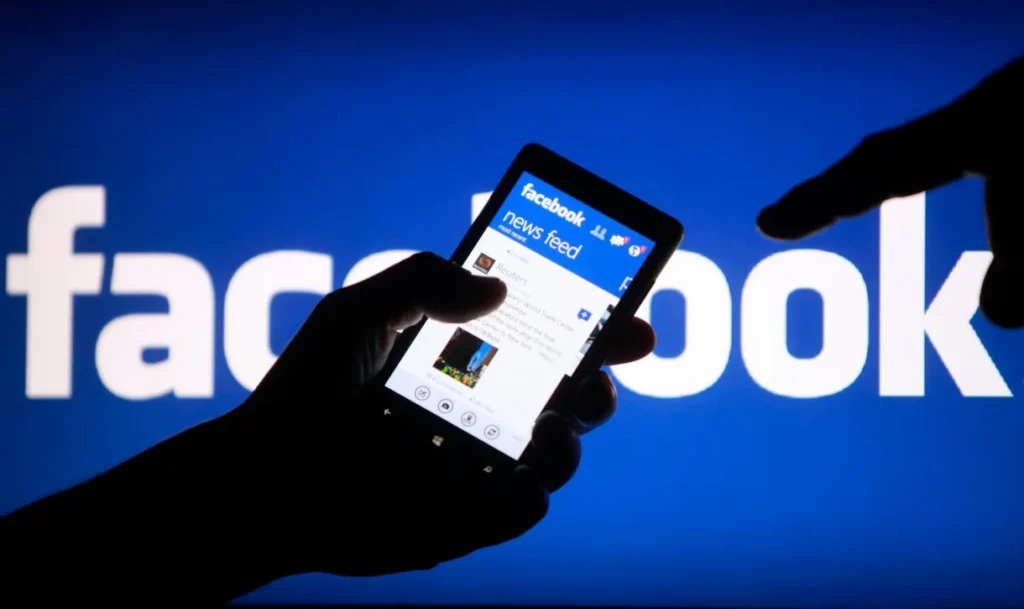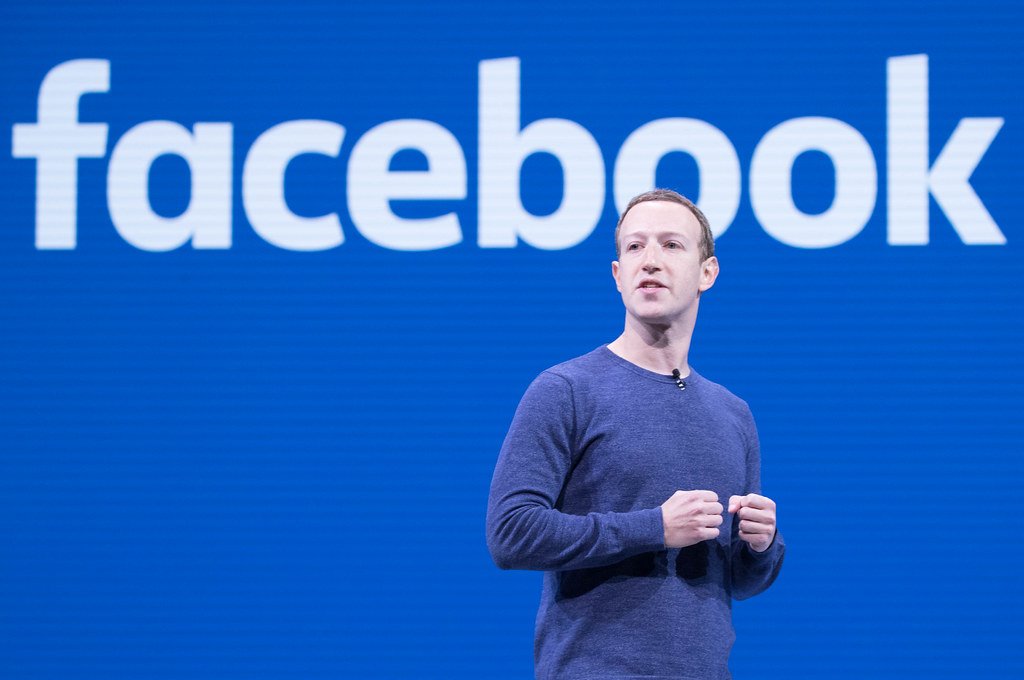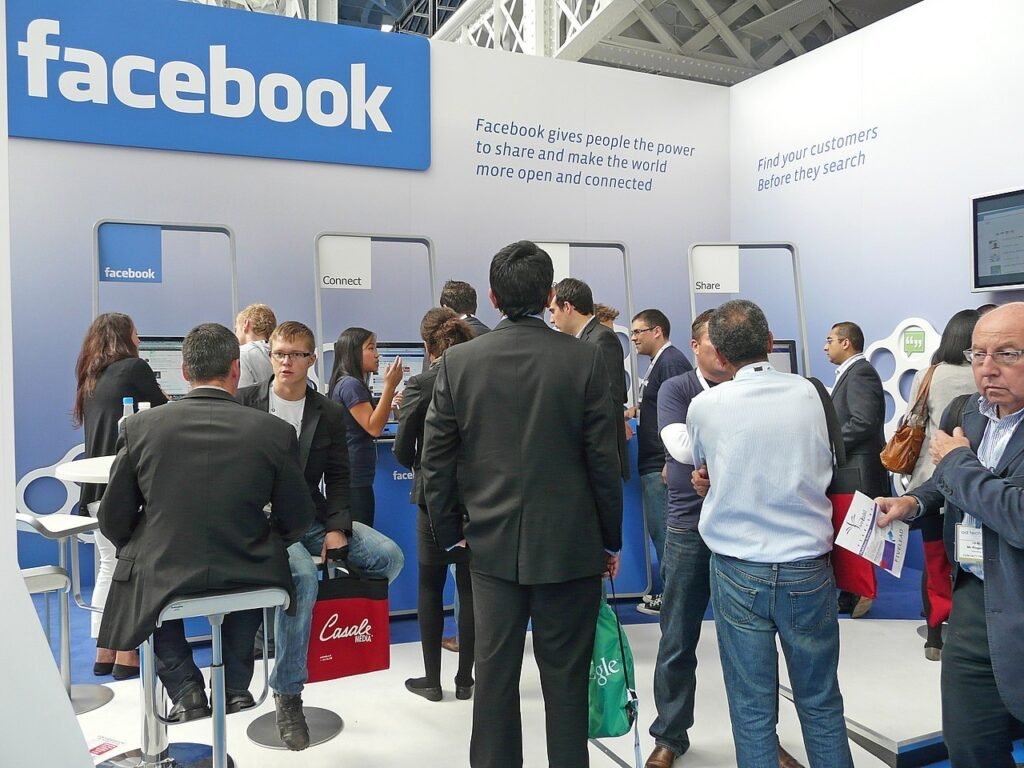In the ever-evolving landscape of technology and social connectivity, few names resonate as profoundly as Facebook and Mark Zuckerberg. The inception of Facebook, spearheaded by the visionary Mark Zuckerberg and his collegiate cohorts, heralded a transformative era in social media. Over the years, this platform has redefined how individuals across the globe connect and ignite millions’ imaginations.
Facebook’s journey, from its humble beginnings in a Harvard University dorm room to its evolution into a global social media powerhouse, has been marked by innovation, expansion, and, most recently, the pivot towards the metaverse concept. As we delve into the intricate tapestry of its history, we witness its profound impact on society, communication, and the fabric of our digital existence.
This narrative serves as a retrospective exploration, examining the pivotal moments in the life of Facebook and the indomitable spirit of its founder, Mark Zuckerberg. We traverse the corridors of social media history, tracing the growth of this platform from its nascent stages to its current incarnation as Meta, a company embarking on a bold quest to redefine the digital landscape through the metaverse. Along this journey, we shed light on the strategic acquisitions, innovations, and controversies that have shaped the Facebook narrative and fueled the ambitious vision for the metaverse’s immersive and interconnected future.
Join us as we journey through time and technology, unraveling the intertwined stories of Facebook, Mark Zuckerberg, social media’s evolution, and the exciting frontier of the metaverse. Together, we will explore how these elements have shaped our digital present and are poised to shape the essence of our digital tomorrows.
Table of Contents
What is the primary purpose of Facebook?

The main purpose of Facebook has evolved significantly since its inception, but at its core, it has always been about connecting people and facilitating communication in a digital realm. Initially founded by Mark Zuckerberg in 2004 as a platform for college students to connect and socialize, Facebook quickly expanded its reach to a global audience. Its primary purpose can be distilled into several key aspects:
Social Networking
Facebook’s fundamental purpose is to provide a platform where individuals can create profiles, connect with friends and family, and share their thoughts, photos, videos, and life events. It serves as a digital space for social interaction and expression.
Communication
Facebook offers a variety of communication tools, including instant messaging, video calls, and comment threads, enabling users to stay in touch with people worldwide in real-time. It has become a primary means of digital communication for many.
Information Sharing
Users can share news, articles, and other content, making Facebook a hub for information dissemination. This has transformed it into a vital source of news and information for a significant portion of its user base.
Networking and Business
Businesses and professionals use Facebook for networking, marketing, and advertising. It provides tools like Pages and Groups for companies and organizations to connect with their audiences.
Entertainment and Content
Through the years, Facebook has introduced features like Facebook Watch and Gaming, making it a platform for entertainment, including video content, live streaming, and gaming.
Community Building
Facebook fosters the creation of online communities and interest groups, allowing users to connect over shared hobbies, interests, and causes.
Metaverse Development
In recent years, Facebook (now Meta Platforms, Inc.) has pivoted towards developing the metaverse. This virtual universe aims to revolutionize how people interact and collaborate digitally.
In summary, while its primary purpose has expanded and adapted over time, Facebook’s core mission remains rooted in connecting people, facilitating communication, and providing a platform for sharing and networking on a global scale.
Who controls Facebook?

Facebook, now known as Meta Platforms, Inc., following its rebranding in 2021, is primarily controlled by its founder and CEO, Mark Zuckerberg. As of my last knowledge update in September 2021, Mark Zuckerberg held a significant portion of the company’s voting power due to his ownership of Class B shares, which have 10 times the voting power of Class A shares. This unique share structure affords him substantial control over the company’s strategic decisions and corporate governance.
While Mark Zuckerberg is the dominant force in Meta, the company also has a board of directors and shareholders. The board provides oversight and guidance for the company’s operations. However, it’s important to note that Mark Zuckerberg’s substantial voting power gives him the final say in many matters.
Additionally, Meta has faced calls from some shareholders and advocacy groups to increase transparency and address governance concerns related to Zuckerberg’s concentration of power.
History of Facebook
The history of Facebook is a fascinating journey that began in a Harvard University dorm room and evolved into one of the world’s most influential social media platforms. Here is a detailed overview of the history of Facebook:
Founding (2004)
Facebook was founded by Mark Zuckerberg and a small group of his college friends and roommates. In February 2004, when Zuckerberg was just a sophomore at Harvard University, he and his co-founders, Andrew McCollum, Eduardo Saverin, Chris Hughes, and Dustin Moskovitz, launched what was initially called “TheFacebook.” The platform was born in Zuckerberg’s dorm room, but its impact would soon reverberate far beyond the confines of Harvard.
This innovative venture rapidly expanded its reach, starting as an exclusive social networking platform for Harvard students before spreading to other Ivy League institutions and subsequently to universities across the United States and Canada. The entrepreneurial vision of these young pioneers and their dedication to connecting people played a pivotal role in transforming Facebook from a dorm room project to a global social media giant, fundamentally altering how people communicate and share their lives. This strategic decision set the stage for Facebook’s unprecedented growth and solidified its position as one of the most influential and widely-used social media platforms in the world, forever changing the way people connect, communicate, and share information online.
Venture Capital and Scaling (2006-2007)
In 2006, Facebook achieved a significant milestone in its rapid ascent to becoming a social media giant when it secured its first significant investment. Accel Partners, a prominent venture capital firm, infused $12.7 million into the company. This injection of capital proved instrumental in Facebook’s ability to scale its infrastructure and expand its user base to an even broader audience.
The funds enabled the company to invest in server infrastructure, technical resources, and talent, ensuring a robust and reliable platform capable of accommodating its skyrocketing user numbers. Moreover, it facilitated the continuous development of innovative features and improvements to enhance the user experience.
One of the pivotal developments in 2007 was the introduction of “Pages” on Facebook. This innovation marked a significant shift, allowing businesses and brands to establish a digital presence within the social media ecosystem. Pages provided organizations with a dedicated space to engage with their audience, share content, and build brand loyalty. This pivotal step bolstered Facebook’s value proposition for businesses and set the stage for the platform’s evolution into a versatile marketing and advertising hub.
Facebook Platform and Applications (2007-2008)
In May 2007, Facebook embarked on a transformative journey by launching the Facebook Platform, a pivotal moment in social media history. This groundbreaking move opened the doors to third-party developers, inviting them to create applications that could seamlessly integrate with the platform. It marked a paradigm shift, as users could now personalize their Facebook experience with various apps, ranging from games and quizzes to productivity tools and social plugins. This enhanced user engagement and fostered a vibrant ecosystem of developers eager to innovate within the Facebook environment.
Simultaneously, Facebook introduced its advertising platform in 2007, ushering in a new era of targeted digital marketing. Businesses and brands could now harness the platform’s rich user data to craft highly personalized ads, ensuring that their messages reached the most relevant audiences. This innovation empowered advertisers and became a significant revenue stream for Facebook, underlining its transition from a mere social networking site to a global advertising powerhouse. These developments laid the foundation for Facebook’s continued growth and influence in the future.
Controversies and Legal Battles (2007-2012)
During the period marked by controversies and legal challenges, Facebook was embroiled in a series of significant issues that raised concerns about user privacy, data sharing, and intellectual property. One notable event was the settlement of a lawsuit with ConnectU, a competing social network founded by Cameron, Tyler Winklevoss, and Divya Narendra. The lawsuit alleged that Mark Zuckerberg had stolen their idea and code to create Facebook, resulting in a settlement in 2008.
Another controversial development was Facebook’s introduction of Beacon, an ad-targeting system, in 2007. The system faced severe backlash for automatically sharing user activity on external websites without explicit consent, leading to Facebook making significant changes to Beacon’s implementation and eventually discontinuing the service.
Furthermore, amid mounting concerns over user privacy and data handling practices, the Federal Trade Commission (FTC) investigated Facebook’s privacy practices. This investigation resulted in a settlement agreement in 2011, which mandated changes to Facebook’s privacy policies and required the company to undergo regular privacy audits for 20 years. These controversies and legal challenges marked a crucial period in Facebook’s history, prompting the company to address privacy concerns and take significant steps toward improving user data protection and transparency.

IPO and Becoming a Public Company (2012)
On May 18, 2012, Facebook made a historic leap onto the public market with its initial public offering (IPO) on the NASDAQ stock exchange. This event was closely watched by investors, tech enthusiasts, and the general public, marking a significant milestone in the company’s journey from a dorm room project to a global tech giant.
The IPO raised a staggering $16 billion, making it one of history’s largest and most anticipated tech IPOs. This influx of capital gave Facebook substantial resources to expand and invest in its business operations. It also transformed the company into a publicly traded entity, subject to increased scrutiny, transparency, and shareholder expectations.
The IPO had its share of challenges, including technical glitches on the NASDAQ exchange that delayed trading and led to lawsuits. Still, it cemented Facebook’s position as a significant player in the tech industry and set the stage for its continued growth and evolution.
Acquisitions (2012-2021)
Facebook’s strategic acquisitions of Instagram, WhatsApp, and Oculus VR during the early 2010s were pivotal moments in the company’s history, profoundly altering its reach and influence in the realms of social media and technology.
The acquisition of Instagram in 2012, a popular photo-sharing platform, allowed Facebook to tap into the rapidly growing visual content trend. Instagram’s user base and unique features provided Facebook with a new avenue to engage younger demographics and solidify its dominance in photo and video sharing.
In 2014, Facebook acquired WhatsApp, a widely used messaging app with a global user base. This acquisition not only expanded Facebook’s reach into the messaging space but also bolstered its presence in emerging markets where WhatsApp was particularly popular. WhatsApp’s secure and encrypted messaging service aligned with Facebook’s commitment to user privacy.
The purchase of Oculus VR demonstrated Facebook’s foray into virtual reality technology, emphasizing its long-term vision for the metaverse. This acquisition positioned Facebook as a major player in the immersive tech industry, fostering innovation and exploring new possibilities for digital interaction.
These acquisitions broadened Facebook’s user base and enriched its services portfolio, reinforcing its position as a tech giant with a diverse range of products and technologies.
Continued Growth and Monetization (2012-present)

Facebook, now known as Meta Platforms, Inc., has continuously expanded its user base by innovating and introducing features that engage and attract users. Among these innovations are Facebook Live, which enables real-time video streaming and interaction, fostering more dynamic and interactive connections among users. The introduction of Marketplace has turned the platform into a bustling online marketplace where users can buy and sell goods locally, further enhancing its utility.
Additionally, the introduction of Watch, a video-on-demand service, has positioned Facebook as a content consumption platform, competing with streaming giants. These features have not only boosted user engagement but have also diversified the platform’s offerings, making it a one-stop destination for various online activities.
Furthermore, the refinement of its advertising model has solidified its position as a primary revenue source for the company. Facebook’s precise ad targeting capabilities, based on user data and behavior, have made it an attractive platform for businesses to reach their target audiences effectively. As a result, the company has witnessed substantial revenue growth, transforming itself from a social networking platform into a digital advertising behemoth.
Rebranding to Meta (2021)
On October 28, 2021, Mark Zuckerberg made a groundbreaking announcement that sent ripples throughout the tech and digital industries: Facebook was undergoing a monumental transformation and rebranding itself as “Meta.” This pivotal moment signified a strategic shift for the company, marking its intensified commitment to pioneering the development of the metaverse and virtual reality technologies.
The rebranding was more than just a change in name; it represented a profound vision for the future of the internet and digital interactions. Meta aims to transcend traditional social media boundaries and create an interconnected virtual universe where people can work, socialize, play, and engage in entirely new ways. The metaverse concept envisions a shared, immersive digital space, where augmented and virtual reality converge to reshape the human experience.
With this rebrand, Meta signaled its dedication to pushing the boundaries of technology and revolutionizing how we perceive and interact with the digital world. It also underscored the company’s ambition to lead the charge in shaping the metaverse, a vision that has captured the imagination of the tech community and beyond.
The Metaverse and Threads (2021 and Beyond)
The transformation of Meta into a metaverse-focused company signifies a profound shift in the tech industry’s trajectory. The metaverse is poised to become the next frontier for technology and online interaction, promising a digital landscape that transcends the limitations of traditional social media.
Meta’s ambitious investments in metaverse development reflect a commitment to redefining how people connect, collaborate, and engage in the digital realm. It envisions a virtual world where users can seamlessly transition between immersive experiences, blurring the lines between the physical and digital domains.
In this metaverse, individuals could work in virtual offices, attend events, and explore social spaces with friends, all while leveraging cutting-edge technologies like augmented and virtual reality. It has the potential to revolutionize not only how we communicate but also how we learn, create, and entertain ourselves.
Meta’s dedication to shaping this interconnected metaverse underscores the company’s aspiration to be at the forefront of this transformative wave. It sets the stage for a future where the boundaries of reality and the possibilities of the digital universe merge in unprecedented ways. As technology advances, Meta’s role in shaping the metaverse’s evolution will likely be a defining narrative of the digital age.
Threads, a social media and networking service, was released on July 5, 2023, under the Meta Platforms umbrella. It empowers users to share text, images, and videos while engaging through features like replies, reposts, and likes. It’s tightly integrated with Instagram, requiring users to link their Threads and Instagram accounts under the same handle, akin to Twitter’s functionality. The Threads app caters to iOS and Android users, while a web version offers limited functionality.
However, the app experienced a subsequent decline, with the user base dwindling by over 80% to 8 million daily active users by the end of July.
Following Elon Musk’s Twitter acquisition in October 2022, Meta employees explored incorporating text-based features into Instagram, resulting in the launch of Instagram Notes in December 2022. This endeavor paved the way for Threads, internally known as “Project 92,” with development commencing in January 2023. Threads officially launched on July 5, 2023, making it available in 100 countries. However, its European Union launch was postponed, pending regulatory clarity from the European Commission regarding data collection policies.
Throughout its history, Facebook has played an unparalleled role in revolutionizing how people connect, communicate, and share information in the digital realm. It emerged as a trailblazer in the social media landscape, redefining the essence of online interactions. Facebook’s journey has been marked by relentless innovation, enabling individuals to bridge geographical boundaries, forge new relationships, and disseminate information on an unprecedented scale.
However, this transformative path has not been without its fair share of challenges and controversies. From concerns over user data privacy to debates on misinformation, Facebook has faced scrutiny and criticism, necessitating continuous adaptation and improvement.
Now, operating under the banner of Meta, the company is poised at the forefront of a paradigm shift. With a renewed focus on the metaverse, Meta is pushing technological boundaries, envisioning a future where the digital and physical worlds seamlessly converge. As it embarks on this ambitious journey, Meta seeks to redefine how we work, socialize, and experience the digital universe, solidifying its enduring dominance in the ever-evolving tech industry.









